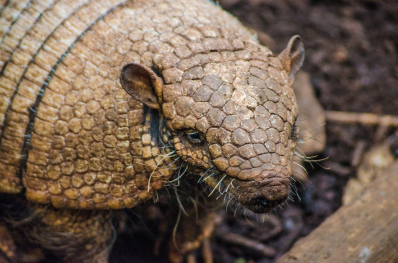Phrases and clauses: armadillo
The Grammar Bit!
Sentences are made from phrases and clauses.
A clause (bold) is a group of words that typically contains a subject (the ‘doer’ of the action) and a verb (the action), e.g. ‘The armadillo was searching for termites.’ When a clause expresses a complete thought like this, it can act as a sentence on its own. This type of clause is called a main clause.
A phrase (underlined) is a small group of words that forms part of a clause. Because it doesn’t contain both a subject and a verb, it cannot act as a sentence on its own. Phrases are often the parts of sentences that add extra detail, making them more descriptive for the reader, e.g. ‘at dawn and at dusk’, ‘the secretive armadillo’.
Scintillating Sentences
1A) (main clause) The armadillo was searching for termites.
1B) (phrases) at dawn and at dusk, the secretive armadillo, lots of juicy termites
1C) (sentence) At dawn and at dusk, the secretive armadillo was searching for lots of juicy termites.
2A) (main clause) The giant armadillo is rarely seen by humans.
2B) (phrases) In South America, the shy and elusive giant armadillo
2C) (sentence) In South America, the shy and elusive giant armadillo is rarely seen by humans.

Did you know?
The word “armadillo” is Spanish and means “little armoured one.” This refers to the bony plates that cover the animal. The armadillo is the only living mammal to wear such a shell.

